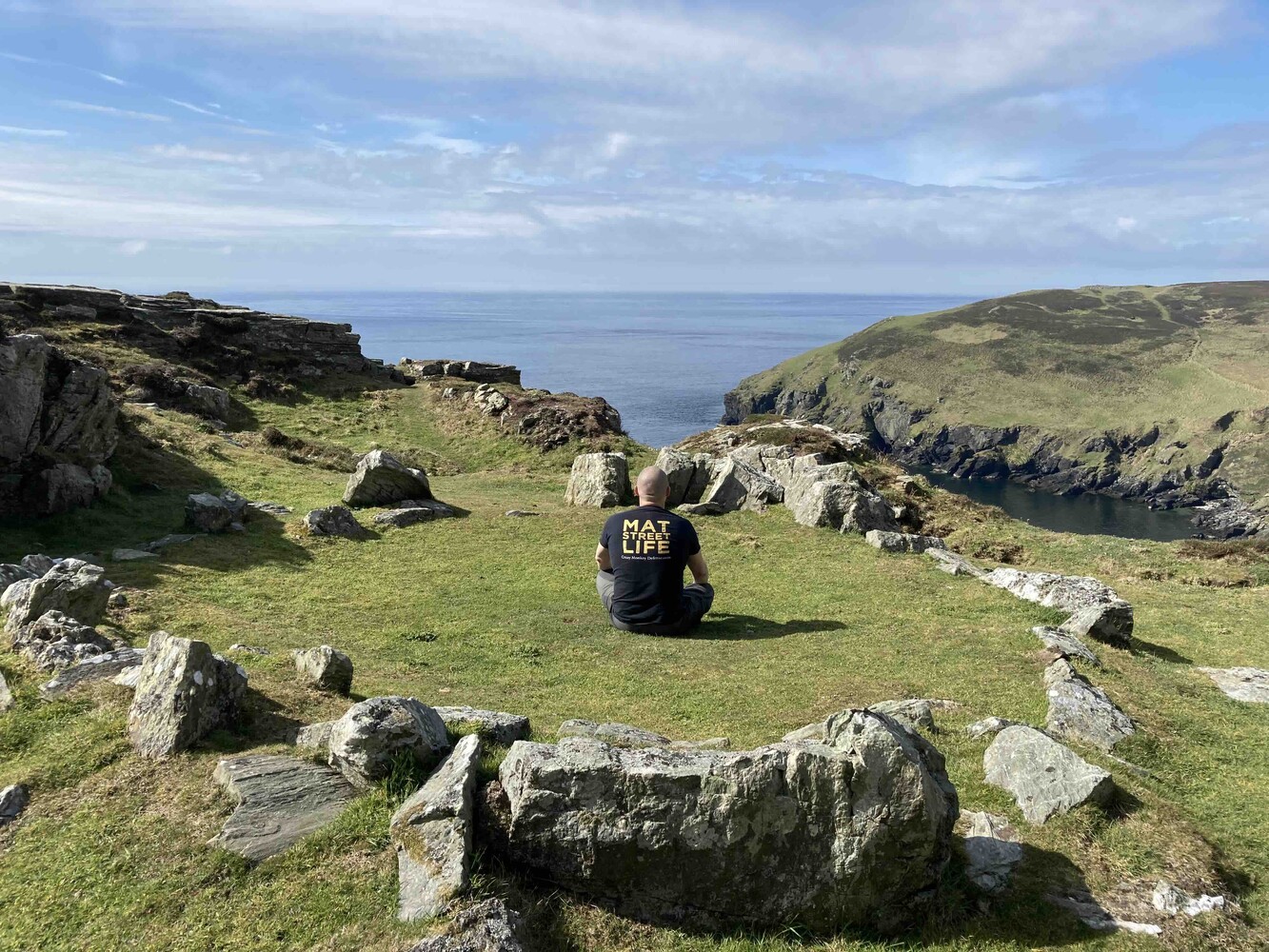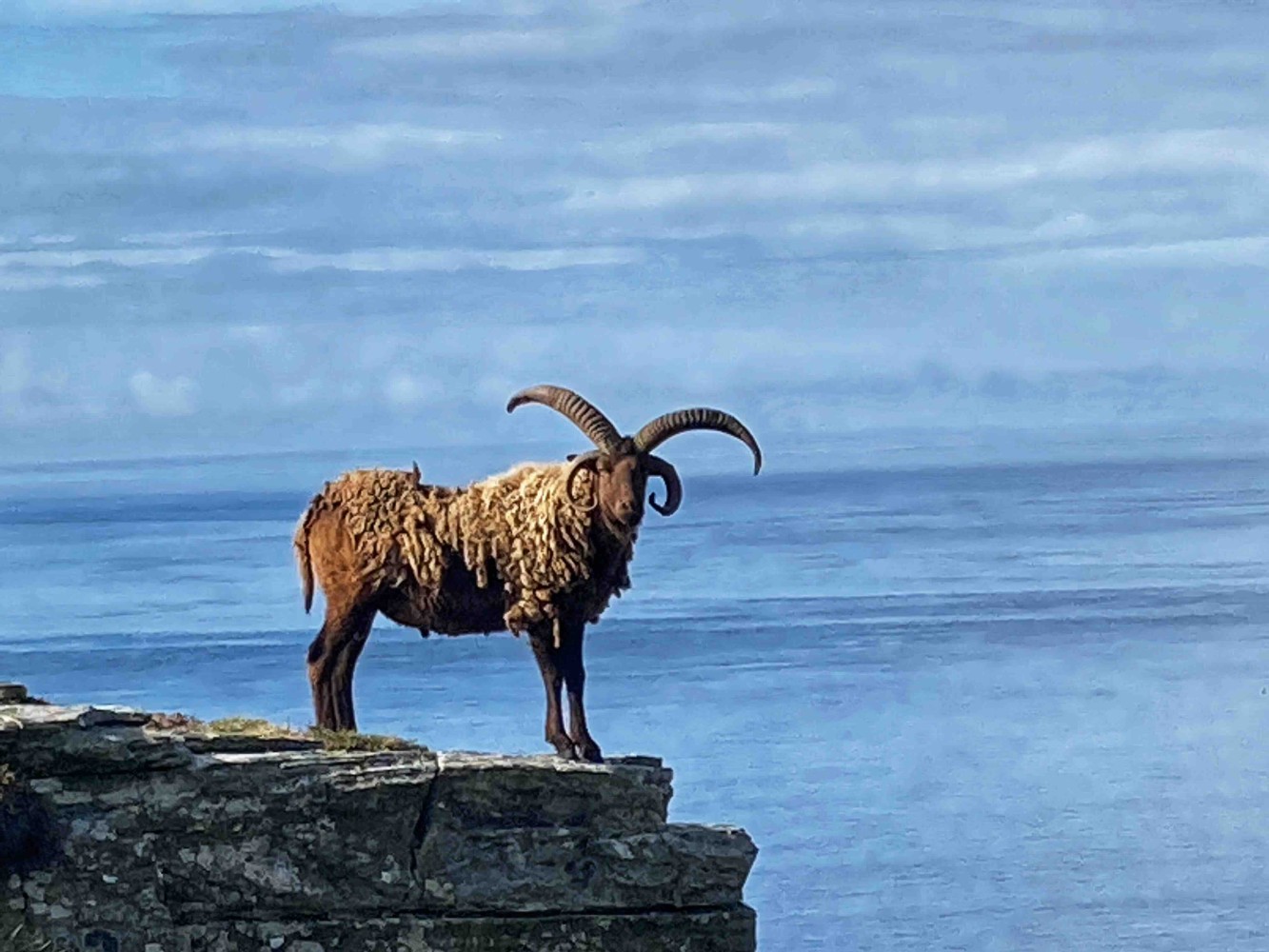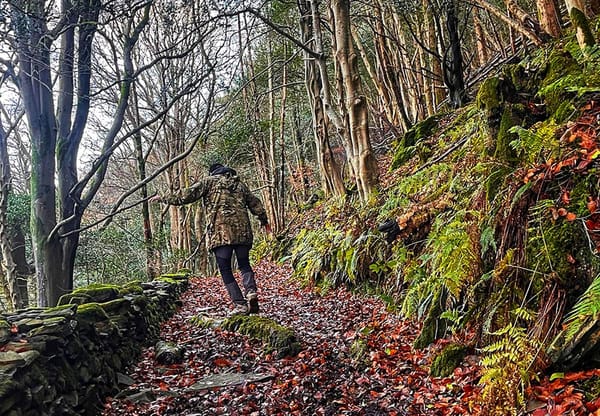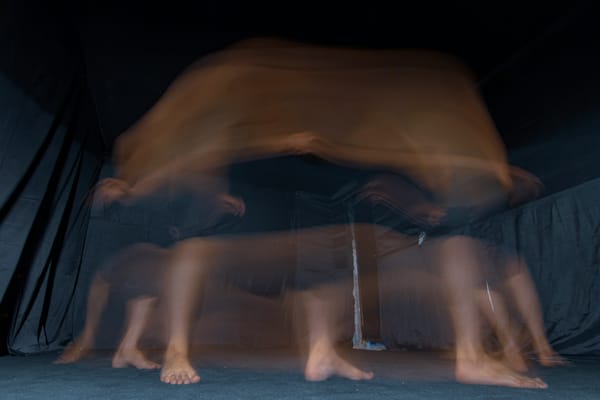Whenever I feel the call to stillness, I retreat to the Chasms, a quiet place on the Isle of Man where history (Cronk Karran ‘Druids Circle’) and ancient hills meet the restless sea. I often walk there, especially when my mind is crowded with thoughts. Today, watching waves crash against weathered rocks, I'm struck by something paradoxical: beneath the constant motion of the surface, there's a deeper stillness—one that holds both movement and quiet in perfect balance.
This observation feels particularly relevant in our age of perpetual motion. We live in a world that celebrates constant activity, endless productivity, ceaseless connection. Stillness has become almost revolutionary—a form of resistance against the cult of busyness that defines modern life.

The Paradox of Stillness
For decades, I taught martial arts, where students often assumed that mastery meant constant motion, perfect technique, ceaseless practice. Yet the highest levels of martial wisdom reveal something different: true power emerges not from constant movement but from finding stillness within motion. The master's strike isn't just about speed or strength—it's about the quiet centre from which all effective action emerges.
This isn't just true in martial arts. Life itself teaches us this lesson, if we're willing to pay attention. Watch any natural process—a bird riding wind currents, a tree bending in a storm, waves meeting shore. There's always movement, yes, but underneath lies a profound stillness, a core of quiet that makes all motion meaningful.
Philosophy in the Quiet
Eastern wisdom traditions have long understood this. Zen speaks of finding the ‘still point of the turning world.’ Taoism teaches us about wu-wei—action through non-action. But Western philosophy also recognises the power of stillness. Kierkegaard wrote about ‘stillness before God’ as a state of deep authenticity. The Stoics sought ataraxia—a kind of unshakeable inner tranquillity amid life's storms.
What all these traditions recognise is that stillness isn't passive. It's not about withdrawing from life or seeking escape. True stillness is deeply active—a form of engaged presence that allows us to meet life's complexity with clarity and wisdom.
Finding Stillness in Motion
My own journey with stillness has been anything but straight. As a martial artist, I first had to learn it through movement. Later, when health issues forced me to step back from intensive training, I had to find it in limitation. Now, as a philosophical coach, I help others discover it in their own lives.
What I've learned is that stillness isn't something we achieve once and for all. It's a practice, a way of being that we must continually rediscover. Sometimes it comes through meditation or quiet walks. Other times it emerges in unexpected places—in the focus of intense work, in the flow of creative expression, even in the midst of crisis.

The Revolutionary Act of Being Still
In our hyperconnected world, choosing stillness becomes almost revolutionary. When everything pushes us toward constant activity, taking time to be still—truly still—is a radical act. It's a declaration that our worth isn't measured by our output, that wisdom sometimes comes not from doing more but from being more fully present with what is.
This kind of stillness offers something our busy world desperately needs: the space to think deeply, to feel fully, to question authentically. In stillness, we can hear the quieter voices of wisdom that are often drowned out by the noise of modern life.
But how do we cultivate this philosophical stillness in practice? It begins with recognition—understanding that stillness isn't the enemy of progress but its foundation. Every meaningful action, every significant insight, emerges from a moment of stillness, however brief.
In my own practice, I've found that stillness comes not from forcing quiet but from learning to rest in the midst of movement. It's about finding what Zen practitioners call ‘the backward step’—that slight shift of attention that reveals the quiet space always present within us.
A Different Kind of Wisdom
What stillness offers isn't another technique for self-improvement or another goal to achieve. Instead, it provides a different way of being—one that allows wisdom to emerge naturally, like clarity appearing in water that's allowed to settle.
As I stand here on these ancient shores, watching the endless dance of sea and sky, I'm reminded that perhaps this is what philosophy was always meant to be: not just a system of thought but a way of finding stillness amid life's motion, clarity amid confusion, wisdom amid uncertainty.
In a world that increasingly mistakes motion for progress, stillness might be the most profound philosophy of all—teaching us not through arguments or theories but through the simple, revolutionary act of being quietly, fully present to our own lives.
Let the waves crash. Let the world spin. There's wisdom in the quiet, if we have the courage to be still.
Recommendations
If this exploration of philosophical stillness resonates with you, I invite you to discover how philosophical coaching might help you find your own path to wisdom through stillness [FIND OUT MORE HERE]
Thanks for reading The Philosophy Coach! Subscribe for free to receive new posts and support my work.










Member discussion